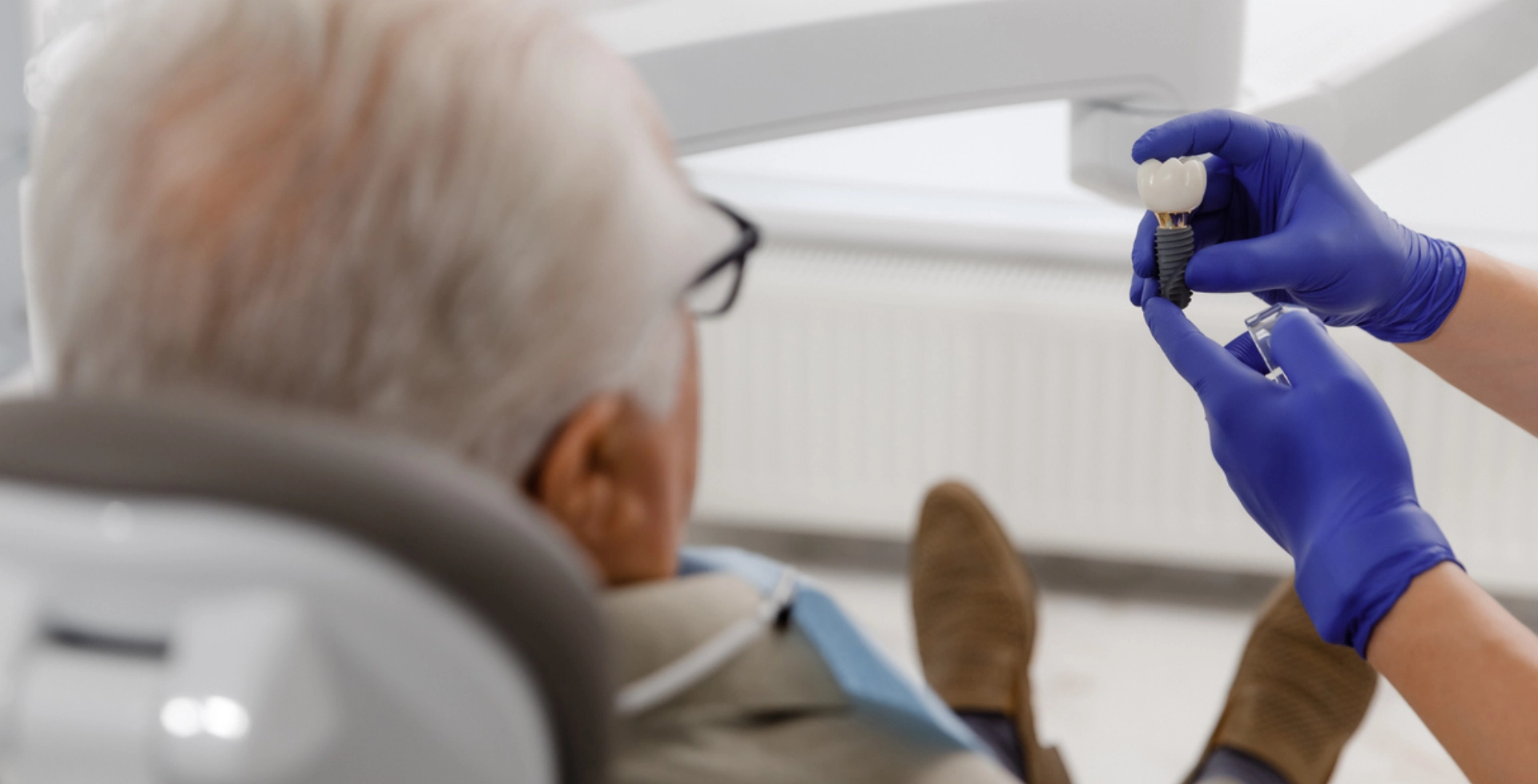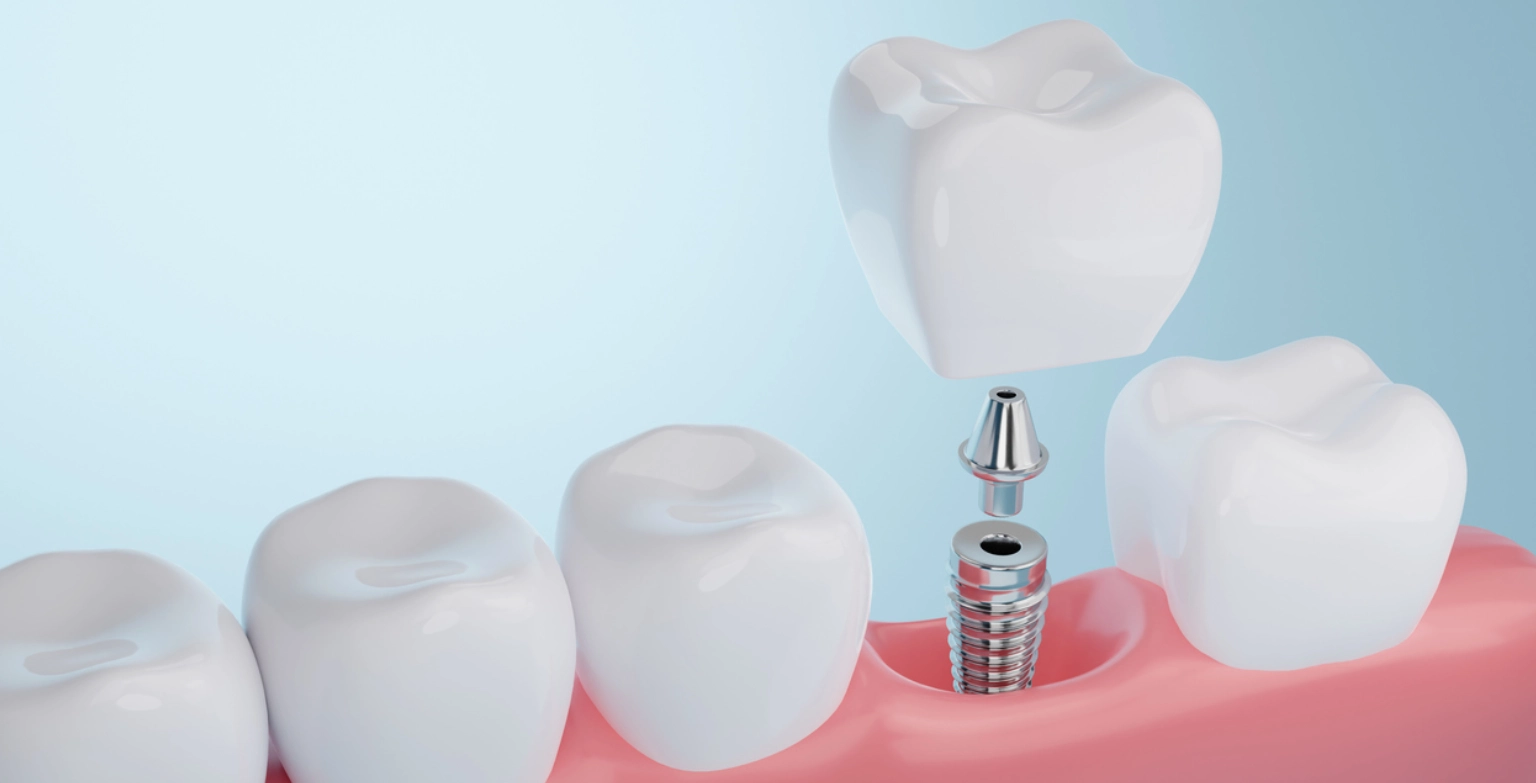Can You Eat With Dentures? – What to Eat & Avoid

Dentures can give you the amazing opportunity to smile confidently again and mingle among people without feeling conscious. But the thought of adjusting to a brand-new dental appliance can raise questions about your ability to enjoy meals just like you did before.
If you are someone who is looking to get dentures, then surely you must have wondered: Can you eat with dentures?
The reality is that with proper care and understanding, you can continue to savor a wide variety of foods and maintain a nutritious diet even while wearing dentures!
Let’s examine what you can eat with dentures, what you need to avoid, and how your dental appliance can make your eating experience all the more enjoyable!
So, Can You Eat with Dentures?
Proper nutrition is paramount for overall health and well-being. However, for those wearing dentures, ensuring adequate nutrition takes on added significance. That’s why the question, “Can you eat with dentures?” is not just about culinary preferences; it’s about promoting optimal health and quality of life.
The prospect of eating with dentures can initially seem daunting, especially for those who are new to wearing them.

You may have to undergo a period of adaptation as you get accustomed to the sensation of wearing dentures. But you will be pleasantly surprised to know that eating with dentures is not only possible but quite manageable with some adjustment and practice.
What Can You Eat With Dentures?
Life with dentures can give you a few curve balls when it comes to eating, but all you need to know is what foods you can eat with dentures that provide you with all the proper nutrients.
Soft Foods
Soft foods are usually the easiest food for denture wearers to consume. This is because they require minimal chewing and are gentle on the gums and palate. Here are some options you can explore while picking your soft food diet.
- Soups: Whether creamy or broth-based, soups are excellent options for what you can eat with dentures, as they can be customized with various vegetables, proteins, and grains.
- Cooked Vegetables: Well-cooked or steamed vegetables like carrots, broccoli, and squash can be soft and nutritious additions to any meal.
- Mashed Vegetables: Mashed potatoes, sweet potatoes, and cauliflower mash are super satisfying sides that are easy to swallow and perfect to eat while you are wearing dentures.
Protein Sources
Protein is extremely important for you if you wish to maintain muscle strength and overall health. The great thing is that there are plenty of denture-friendly protein options available!
- Tender Meats: Chicken, turkey, and pork loin can be cooked until they are soft and easy to chew.
- Fish: Fish items like salmon are high in protein. You can prepare them in different ways, from baking to steaming, allowing you to enjoy different textures.
- Tofu: If you follow a plant-based diet, tofu is a great source of protein that you can incorporate into stir-fries, salads, and soups.
Dairy Products
Dairy products are not only rich in calcium but also soft and easy to eat with dentures.
- Yogurt: Yoghurt is a super creamy and delicious option that can be enjoyed plain or flavored with fruit and honey.
- Pudding: Pudding and custard can be the satisfying end to a delicious meal that requires little to no chewing.
- Cottage Cheese: This is another excellent choice that can be eaten on its own or mixed with fruit for added flavor and nutrition.
Grains & Carbohydrates
Grains and carbohydrates are staples of multiple diets and help you feel full. As a denture wearer, there are many ways that you can enjoy your grains and carbohydrates with ease.
- Pasta: Whether it’s spaghetti, penne, or macaroni, pasta can be cooked until it’s soft and served with a variety of sauces and toppings.
- Rice: Whether white, brown, or wild, rice is a versatile side dish that pairs well with all meats, vegetables, and sauces.
- Soft Bread: Soft bread can be enjoyed on its own or used to make sandwiches and toast.
Fruits
Fruits are extremely delicious and packed with all the vitamins, minerals, and fiber you need.
- Ripe Bananas: Naturally soft and easy to chew, bananas are an ideal addition to smoothies and oatmeal.
- Berries: Strawberries, blueberries, and raspberries are bite-sized and can be enjoyed fresh or blended into smoothies.
What Can You Not Eat With Dentures?

Sticky Foods
Sticky foods can be quite challenging for denture wearers because they can literally stick to the dentures and palates. This makes it difficult to clean the dentures, leading to damage. Stay away from items like:
- Caramels
- Gummy candies
- Taffy
- Peanut butter
They can cause irritation by getting lodged between denture teeth, underneath the denture base, or create suction due to their adhesive structure.
Hard Foods
Hard foods require a lot of chewing force. That can put undue pressure on dentures and potentially cause them to fracture or break. Refrain from having:
Nuts, such as almonds, peanuts, and cashews. They are dense, hard, and very challenging to chew
Hard candies like jawbreakers and peppermints; may crack or break dentures.
Raw vegetables, such as carrots, celery, and bell peppers. They may lead to denture dislodgment.
Tough Meats
Tough meats can be difficult for denture wearers to chew effectively, especially if the dentures are not securely fitted or have loose or unstable dentures. Avoid tough meats like:
Steak – Requires significant chewing force.
Jerky – Can be problematic; may cause denture discomfort or dislodgement.
Chewy Cuts of Meat – Beef brisket or pork belly, which can be difficult to chew thoroughly
Crunchy Foods
Crunchy foods can cause damage to dentures or irritate the gums and palate due to their abrasive nature. Avoid:
Popcorn kernels – Can become lodged between denture teeth or underneath the denture base.
Pretzels & Chips – Hard and crunchy; may increase the risk of denture fractures.
Hot Foods & Beverages
Hot foods and beverages pose a serious risk of burning the gums and palate of denture wearers, as the heat can be transferred through the denture material and cause discomfort or injury.
Tips to Enjoy What You Can Eat with Dentures
Eating with dentures can be a pleasant and comfortable experience by following a few practical tips.
- Take Small Bites: Taking smaller bites allows you to control the food better, making it easier to chew thoroughly and swallow safely.
- Chew Slowly: Chewing slowly also helps you savor the flavors of your food, enhancing your overall dining experience.
- Distribute Pressure: Use both sides of your mouth to distribute pressure. This will keep your dentures stable and break your food down properly.
- Cut Food into Smaller Pieces: Smaller pieces are easier to chew and less likely to cause discomfort or dislodge your dentures.
- Practice Good Oral Hygiene: Proper oral hygiene is essential for denture wearers to prevent infections, bad breath, and other oral health issues.
- Regular Dental Check-Ups: Staying proactive with your dental care helps to prevent issues before they arise and keeps your dentures in optimal condition.
Conclusion
Now that we have satisfied your curiosity about the question, “Can you eat with dentures?” you know that eating with them doesn’t have to be a limiting experience. With a bit of adaptation and an open mind, denture wearers can enjoy a wide variety of foods that not only satisfy their taste buds but also support their nutritional needs.
With the right approach, maintaining a healthy and enjoyable diet with dentures is entirely possible. Your dentures are a tool to enhance your quality of life, allowing you to enjoy the foods you love and maintain optimal health.
So, take care of your dentures, explore your culinary options, and relish the joy of eating well every day!
Discover Enjoyable Eating with Dentures at Brookline Smile Artists
Ready to enjoy your favorite foods again? Brookline Smile Artists can ensure that your dentures fit perfectly and function optimally so you can savor every meal without worry.
Schedule a consultation with Brookline Smile Artists today. Contact us now to book your appointment and experience the difference that personalized denture care can make!
FAQ
Can dentures fall out while eating?
Dentures can sometimes become loose and fall out while eating, especially if they don’t fit properly or if there is insufficient adhesive. However, with well-fitted dentures and the correct use of denture adhesive, the likelihood of this happening is significantly reduced.
How long does it take to eat with dentures?
The time it takes to eat with dentures can vary from person to person. Eating with dentures may initially feel awkward and slow as you get used to the new sensations and mechanics. It can take a few weeks to a few months for most people to feel comfortable and confident eating with dentures. With practice, eating with dentures will become easier and more natural.

If you are looking for a dentist in Brookline, MA, schedule your consultation with the team at Brookline Smile Artists. We offer Cosmetic and Restorative Dentistry. We are located at 209 Harvard Street, Suite 402 in Brookline. Our office hours are Monday through Thursday from 7:30 AM to 5:30 PM and Friday from 8:00 AM to 2:00 PM.

One of the top rated dentists in Brookline, MA




